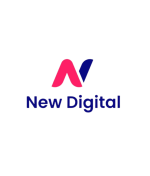
The use of AI tools has become increasingly prevalent in various industries due to their ability to automate tasks, analyze data, and provide valuable insights. Here’s how you can apply the most commonly used AI tools in online businesses while considering automation and delegation:
- Chatbots: Automate customer support using AI-powered chatbots to handle repetitive inquiries and FAQs. Delegate more complex or sensitive issues to human agents.
- Marketing Automation Platforms: Utilize AI-driven marketing automation tools to handle email campaigns, social media scheduling, and personalized content delivery. Delegate creative aspects to marketing experts.
- Recommendation Engines: Use AI recommendation engines to automate personalized product suggestions for customers. Delegate data management and strategy to analysts and marketers.
- Natural Language Processing (NLP) Tools: Automate sentiment analysis of customer feedback and reviews using NLP. Delegate sentiment analysis interpretation and response generation to customer support teams.
- Image and Video Analysis Tools: Automate image and video analysis for product categorization and content moderation. Delegate content creation and optimization to designers and marketers.
- Automated Inventory Management Systems: Utilize AI tools for automated inventory tracking, forecasting, and replenishment. Delegate inventory analysis and decision-making to inventory managers.
- Automated A/B Testing Platforms: Use AI-driven A/B testing tools to optimize website elements. Delegate test design and analysis to optimization specialists.
- Data Analytics and Business Intelligence Tools: Automate data collection and analysis for marketing, sales, and customer behavior. Delegate data interpretation and strategic planning to analysts and managers.
- Automated Payment and Fraud Detection Systems: Utilize AI-powered payment processing tools with fraud detection capabilities. Delegate financial oversight to financial experts.
- Social Media Management Tools: Automate social media posting, scheduling, and monitoring. Delegate community engagement and strategy to social media managers.
- Automated Content Generation Tools: Use AI-powered content generation tools for blog posts, product descriptions, and social media content. Delegate content editing and approval to writers and editors.
- Automated SEO Tools: Utilize AI-driven SEO tools to optimize website content and improve search rankings. Delegate SEO strategy to SEO specialists.
- Automated Customer Segmentation Tools: Automate customer segmentation based on behavior and preferences. Delegate marketing strategies for each segment to marketing experts.
- Automated Language Translation Tools: Use AI translation tools to automate the translation of website content and communication. Delegate quality assurance to linguistic experts.
Remember that while AI tools can automate many tasks, human expertise is still essential for decision-making, creative aspects, and managing more complex or sensitive issues. By strategically combining automation and delegation with these commonly used AI tools, online businesses can enhance efficiency, improve customer experiences, and drive growth in the digital age.








